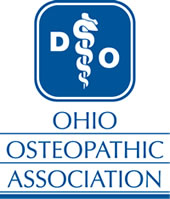OSTEOFACTS | House Passes Civil Immunity Bill
May 29, 2020
Houses Passes Coronavirus Immunity BillA bill granting civil immunity to businesses, health care workers, and others was approved, 83-9, by the Ohio House of Representatives on Thursday. HB 606 grants civil immunity to a person who provides services for essential businesses and operations for injury, death, or loss that was caused by the transmission of COVID-19 during the period of emergency declared by Executive Order 2020-01D, which was issued on March 9. The bill also provides qualified immunity to physicians and a wide range of health care workers who provide services during a declared disaster or emergency; makes prison staff, grocery-store workers, and first-responders eligible for workers’ compensation should they become infected with the coronavirus; and shields state and local governments from coronavirus-related suits. The bill includes an emergency clause, which means if Gov. Mike DeWine signs it, it would take effect immediately instead of after the usual 90 days. As reported in last week’s OSTEOFACTS, the Ohio Senate is considering similar legislation, SB 308. The House also debated contact tracing—and ultimately passed a provision on a party line vote. It makes the practice voluntary and requires health officials to get written consent from Ohioans before doing contact tracing for COVID-19. |
|
Put to the Test
Gov. Mike DeWine announced Ohio is expanding COVID-19 testing to allow partners and communities to test Ohioans in Priority Group 4 to decrease community spread. This includes individuals with symptoms who do not meet the Priority 1, 2, 3 criteria. DeWine said the criteria has been modified because of increased testing availability and evolving knowledge of COVID-19 and its impact. Ohio has utilized COVID-19 testing priorities to manage limited testing capacity. In other testing news, the Ohio Board of Pharmacy has clarified rules that allow pharmacists to order and administer tests for COVID-19. A map of testing locations has been added to the State of Ohio coronavirus website. |
|
Medical Marijuana Numbers ReleasedThe State of Ohio Board of Pharmacy published patient numbers last week for the Medical Marijuana Control Program. The following statistics are as of April 30:
Additional stats as of May 18:
|
|
COCA Seeks FeedbackAt its April meeting, the AOA Commission on Osteopathic College Accreditation (COCA) recently reviewed and approved draft updates to certain sections of the document Accreditation of Colleges of Osteopathic Medicine: COCA Substantive Change Policies and Procedures for initial publication and is seeking comment on the proposed changes. Individuals, as well as those in osteopathic medical education leadership, are invited to share feedback. The document is available here and comments can be submitted here. The deadline is June 19. If you have questions, contact COCA staff at predoc@osteopathic.org. |
|
Suggest a Topic for #MentoringMondayOOA’s mentoring program connects OU-HCOM students throughout Ohio with our osteopathic leaders. Mentoring Monday’s interactive videocall format delves into areas of particular interest to students like professionalism, developing a niche, alternative medical careers, prioritizing residency programs, interviews, and more. Our goal is to ensure program topics are engaging and timely. Students are invited to suggest a topic by using this form. |
|
ODH Loan Repayment Program Deadline June 15The application cycle for the Ohio Substance Use Disorder Professional Loan Repayment Program is open. The goal of the SUDLRP is to increase access to SUD treatment for underserved communities and populations. In exchange for loan repayment assistance, clinicians commit to practice for two years at an eligible site in a Health Professional Shortage Area (HPSA), as well as in other high-burdened SUD areas of the state, accept Medicare and Medicaid, and see clients regardless of ability to pay. Full-time and part-time practice options are allowable, with a minimum of 50% of direct client care hours required to be spent providing SUD treatment. Get the application and details. |
OSTEOPATHIC TRIVIA
We had no correct replies for last week’s question.
Q: What graduating class produced three AOA presidents? You must name the COM and graduation year.
A: Kansas City University College of Osteopathic Medicine, Class of 1981
Find out which presidents (including an OOA member) on the OOA Facebook page.
NEWS & LINKS
How COVID-19 spreads (updated May 22)
CDC
ICU beds in Cuyahoga County occupied at highest rate since coronavirus outbreak began
Cleveland Plain Dealer
First deadlines arrive for laid-off workers to get Obamacare health insurance
Columbus Dispatch
Legislation to stop ‘surprise’ medical bills on its way to Ohio Senate after clearing House
Cleveland Plain Dealer
Missing stroke, heart attack patients alarm local doctors
Dayton Daily News
COVID-19: Adjusting operations to manage patient surge
CMS
COVID-19 Frequently Asked Questions on Medicare Fee-for-Service billing
CMS
THANKS FOR BEING AN OOA MEMBER!
Haven’t paid your 2020-2021 dues yet? Renew on the OOA website.



